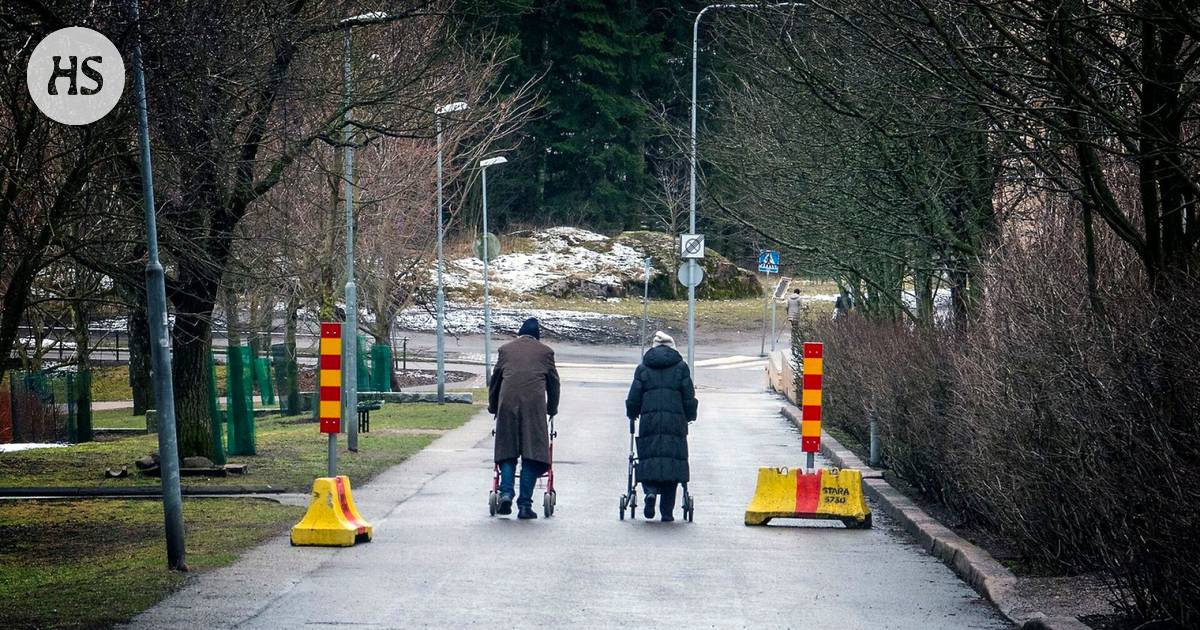At the individual level, Finns are generally positive about old age, but feel that at the societal level, older people are not heard. According to a professor of geriatrics, young people’s perceptions of old age are often flawed.
Finns live longer year by year and the relative share of the elderly population increases as the age structure of society tends towards older people.
But at what age is it permissible to call a person elderly? And how do Finns feel about their own old age and the treatment of the elderly?
“I have sometimes said that an elderly person is one who is 30 years older than themselves,” Professor Emeritus of Geriatrics Timo Strandberg says.
In reality, the question of old age is, of course, not only more scientific but also more multidimensional. If the matter is approached biologically, according to Strandberg, it can be said that 65 years is a “human warranty period”.
“But if you take good care of yourself, you get 20 to 30 more years to live,” Strandberg continues.
“At one point in my career, I said that 75 years is the limit of old age, because after that, a person’s ability to function began to decline and various ailments increase. Today, however, I have missed the age limit of 80-85 as the functional capacity of the elderly has improved and medicine has developed. ”
StranDberg knows what he is talking about, as he has had a long career in the study of the elderly and is one of the most respected geriatricians in Europe and also the chairman of the Federation of Elderly Work.
Geriatrics is a medical specialty that focuses on aging and holistic care for the elderly.
The emeritus, who has reached the age of emeritus, is not only referring to old research, but also has a new citizen survey on old age and aging, commissioned by the Finnish Federation for the Elderly.
What makes the career breaker a survey is that attitudes and perceptions about old age are reportedly being asked for the first time from all age groups from the age of 16 without an upper age limit.
“There has been a lot of criticism of how often the oldest people are left out in different polls and things are considered over older citizens. Now we act differently, and the oldest respondent in the survey was 97 years old, ”says Strandberg.
The survey was conducted as an online survey and telephone interviews from 26 January to 2 March 2022. The study was carried out by Aula Research oy. 2,055 people responded to the survey.
“
“It should be remembered that the negative issues related to old age that are discussed in public always stem from a small number of problems.”
What in a groundbreaking survey then survived?
In particular, Strandberg makes two key, partly related, observations.
First of all, Finns have a generally positive attitude towards old age at the individual level. The older the respondents were, the more positive their own old age was.
On the other hand, many respondents feel that old age and elderly work are viewed critically at the societal level, and that the image of the elderly in public debate is not very rosy.
What is causing this?
“A person is adaptable and adapts well to his or her current life situation. In my research on quality of life, I have tried over the years to emphasize that outsiders should not judge the quality of life of older people, ”says Strandberg.
Here too despite the clarification, the study paints a somewhat contradictory picture of old age. There is a positive attitude towards one’s own old age, but at the level of society, the attitude towards old age is categorically moving in a more negative direction.
Do the tentacles of the welfare state extend to the living conditions of the elderly?
Yes, they do, says Strandberg, although there is no room for criticism.
“Yes, of course it can be said that Finland is a good country to live for the elderly. Finnish care for the elderly is by no means lost in a pan-European comparison, although we have a role to play in making the sector more attractive to young people, among other things. ”
The Finnish media also plays a part in Strandberg’s criticism, which, according to Strandberg, deals with old age unilaterally.
“The vast majority of people over the age of 75 live at home without official support from society. It should be remembered that the negative issues related to old age that are discussed in public always stem from a small number of problems, ”says Strandberg.
“It’s in no one’s interest if these perceptions of old age come to the fore. This is one possible reason why, according to the study, aging is of particular concern to young people and students. ”
“
“Finnish care for the elderly is by no means lost in a pan-European comparison.”
Let’s get back Finally, the beginning of the question of old age. So at what age is a person really old?
According to the respondents, old age starts at an average age of 68. The assessment of old age increases according to the age of the respondents.
Strandberg finds the definition of old age in the survey interesting.
“Otto von Bismarck defined the German retirement age at 70 in the 1890s. At that time, however, the motive was that few people lived to be older and did not have to pay pensions, ”says Strandberg.
“Fortunately, many people today can spend working and healthy retirement years and decades.”
However, Strandberg points out that rising life expectancy and a good quality of life in old age are not natural laws, but good lifestyles prepare for healthy and functional old age throughout life.
“That is why I am concerned about the increase in overweight and diabetes, among other things, and the decrease in the amount of exercise in society. Weight gain reflects one another’s quality of life. ”
#age #person #age #professor #Timo #Strandberg #irresistible #definition








